Yoga Blog
Nourishing Your Practice: A Guide to Clean Eating for Enhanced Yoga
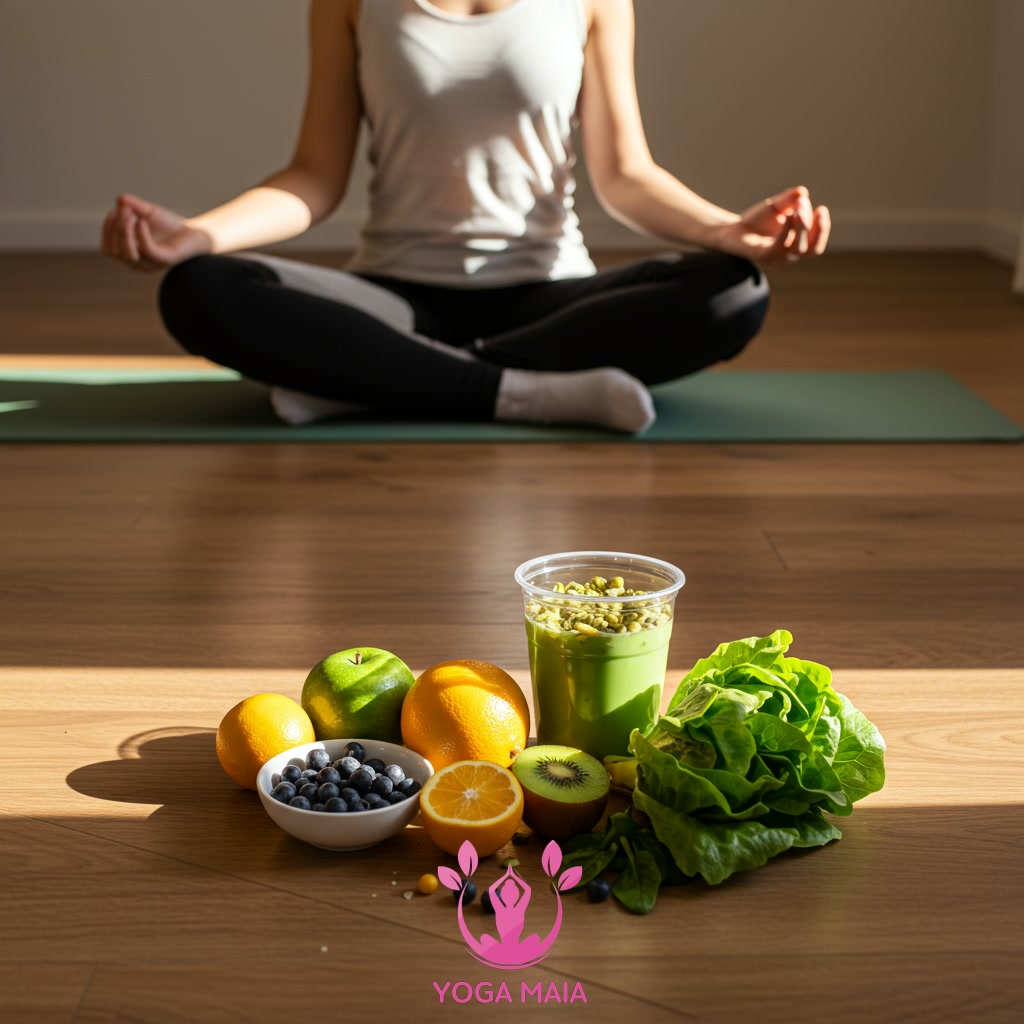
This guide explores the connection between nutrition and physical activity. Specifically, it focuses on how clean eating principles can significantly benefit your yoga practice. By making mindful dietary choices, practitioners can experience increased energy, improved flexibility, and greater mental clarity during yoga sessions. The content provides practical advice on selecting foods that support and enhance your journey in yoga.
Table of Contents
- Section 1: Introduction: The Synergy of Clean Eating and Yoga
- Section 2: Understanding Clean Eating: Core Principles for Yogis
- Section 3: How Nutrition Enhances Your Yoga Practice: Physical and Mental Benefits
- Section 4: Fueling Your Flow: Key Foods to Include and Those to Limit
- Section 5: Practical Tips: Meal Planning and Preparation for a Yogic Lifestyle
- Section 6: Integrating Clean Eating into Your Daily Routine for Sustainable Practice
Section 1: Introduction: The Synergy of Clean Eating and Yoga
Welcome to “Nourishing Your Practice,” a guide exploring the profound connection between what you eat and how you experience yoga. While yoga is often perceived primarily through its physical postures, or asanas, its true potential is unlocked when supported by mindful lifestyle choices. This introductory section delves into the concept of synergy, highlighting how the principles of clean eating can act as a powerful complement to your yoga journey. Clean eating isn’t about restrictive diets, but rather about choosing nutrient-dense, whole foods that fuel your body efficiently. Understanding this relationship is the first step towards experiencing increased energy, enhanced flexibility, and greater mental clarity on and off the mat, allowing you to deepen your practice in meaningful ways.
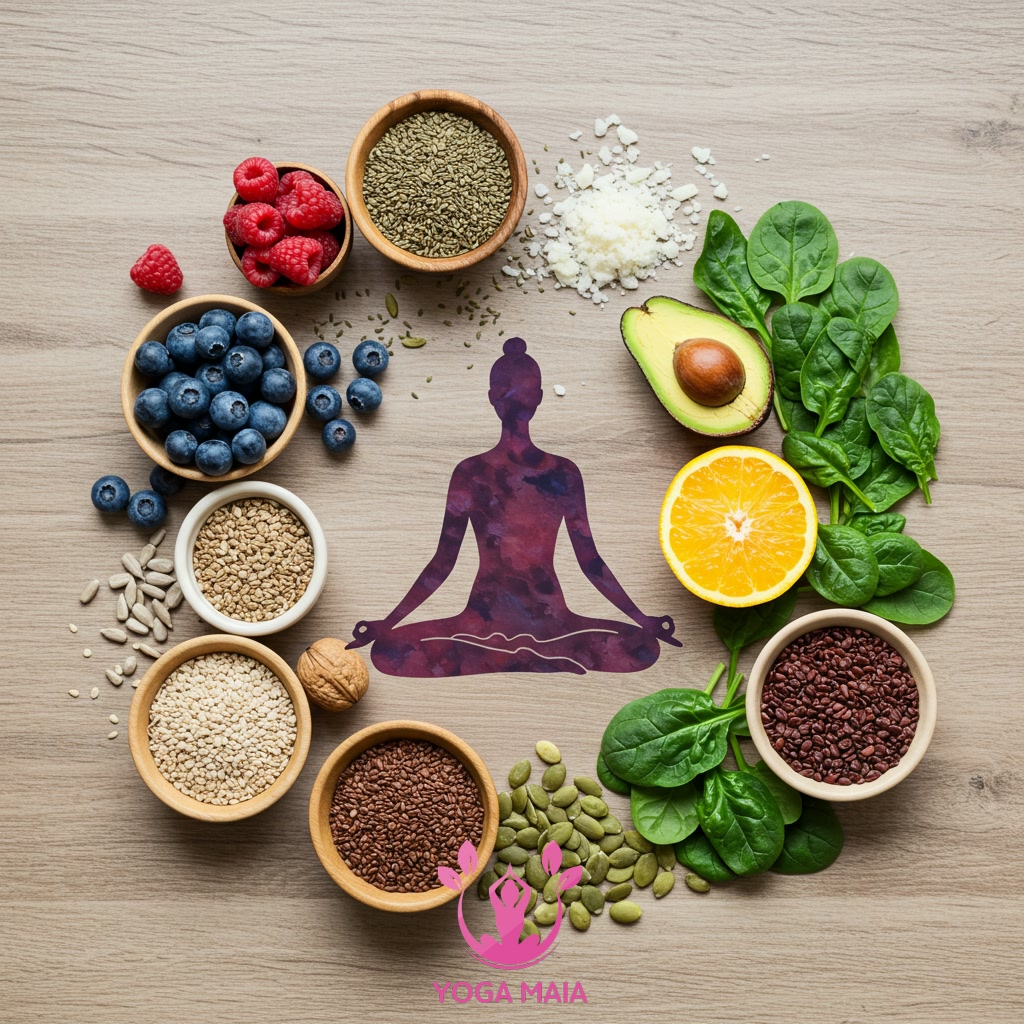 Introduction: The Synergy of Clean Eating and Yoga
Introduction: The Synergy of Clean Eating and Yoga
Section 2: Understanding Clean Eating: Core Principles for Yogis
Understanding clean eating for yogis goes beyond simply restricting calories; it’s about making conscious choices to fuel your body optimally for practice. At its core, it involves prioritizing whole, unprocessed foods – think fresh fruits and vegetables, lean proteins, complex carbohydrates, and healthy fats – while minimizing or avoiding refined sugars, artificial ingredients, and highly processed items. This approach aims to reduce inflammation, stabilize energy levels, and support digestive health, all of which contribute significantly to improved flexibility, stamina, and mental focus on the mat. By choosing foods that are easy to digest and rich in nutrients, yogis can cultivate a sense of lightness and clarity that enhances their physical movements and meditative state.
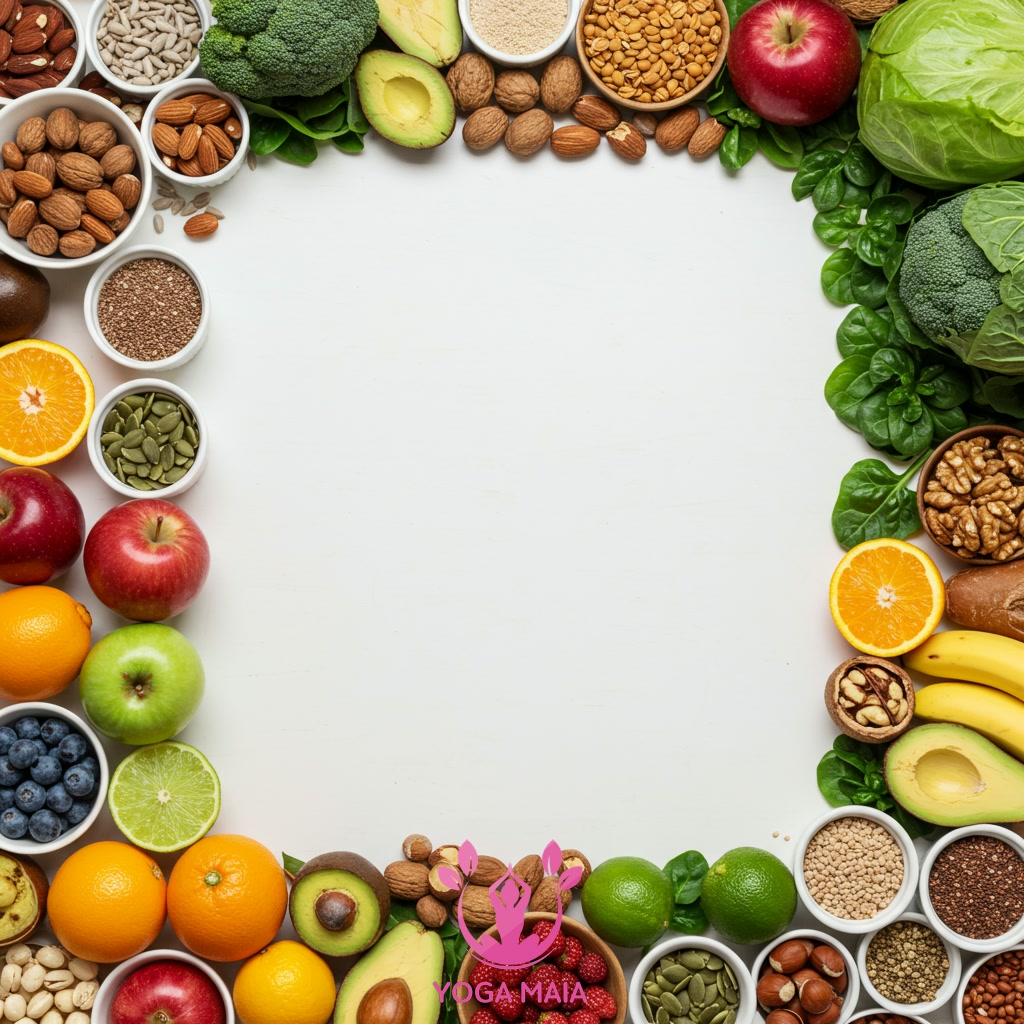 Understanding Clean Eating: Core Principles for Yogis
Understanding Clean Eating: Core Principles for Yogis
Section 3: How Nutrition Enhances Your Yoga Practice: Physical and Mental Benefits
Building upon the foundation of prioritizing whole, unprocessed foods, this section delves into the tangible ways proper nutrition directly enhances your yoga practice. Physically, consuming nutrient-dense foods fuels your body with sustained energy, allowing you to maintain poses longer and transition smoothly. Essential vitamins and minerals support muscle function, joint health, and flexibility, crucial for deepening stretches and preventing injuries. Furthermore, balanced nutrition aids recovery, reducing soreness and preparing you for your next session. Mentally, nourishing your brain with the right nutrients promotes clarity, focus, and emotional stability. This heightened mental state enables you to stay present in the moment, connect more deeply with your breath, and cultivate a sense of calm essential for both the physical postures and meditative aspects of yoga. Thus, mindful eating becomes an integral part of your practice, amplifying its benefits.
 How Nutrition Enhances Your Yoga Practice: Physical and Mental Benefits
How Nutrition Enhances Your Yoga Practice: Physical and Mental Benefits
Section 4: Fueling Your Flow: Key Foods to Include and Those to Limit
Building on the principle of whole foods, optimizing your yoga practice through diet means making specific choices. To fuel your flow effectively, prioritize nutrient-dense options like fresh fruits and vegetables, providing essential vitamins and minerals for energy and flexibility. Incorporate complex carbohydrates from whole grains such as quinoa or brown rice for sustained energy, and lean proteins like legumes, tofu, or chicken for muscle repair and strength. Healthy fats from avocados, nuts, and seeds support joint health and overall well-being. Equally important is limiting foods that can hinder your practice: processed snacks, sugary drinks, and heavy, greasy meals can cause sluggishness and discomfort. Excessive caffeine or alcohol should also be moderated as they can affect hydration and focus. By choosing these supportive foods and minimizing disruptive ones, you create a foundation for a more energetic, comfortable, and focused yoga experience.
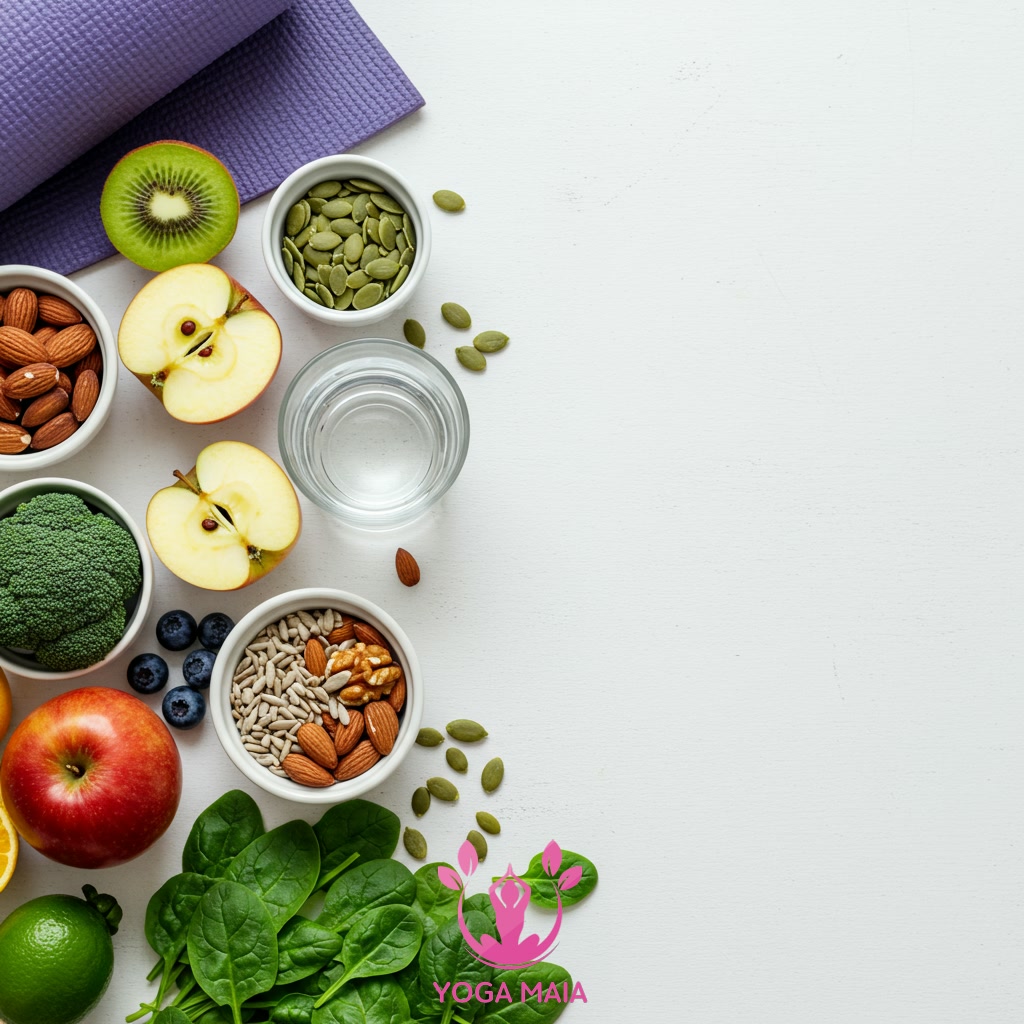 Fueling Your Flow: Key Foods to Include and Those to Limit
Fueling Your Flow: Key Foods to Include and Those to Limit
Section 5: Practical Tips: Meal Planning and Preparation for a Yogic Lifestyle
Building on the principle of whole foods, optimizing your yoga practice through diet means making specific choices. To fuel your flow effectively, prioritize nutrient-dense options like fresh fruits and vegetables, whole grains, lean proteins, and healthy fats. Practical application involves mindful meal planning and preparation. This isn’t just about what you eat, but *how* and *when*. Effective meal planning ensures you have nourishing options readily available, preventing impulsive unhealthy choices. Consider dedicating time each week for batch cooking staples like grains, roasted vegetables, or simple protein sources. Prepare meals and snacks in advance to conveniently fuel your body throughout the day, especially around your yoga practice times. Timing is key: avoid heavy meals immediately before a session, opting instead for easily digestible snacks. Post-practice, refuel with balanced nutrients to aid recovery. Simple, whole-food based recipes are your allies in maintaining consistency.
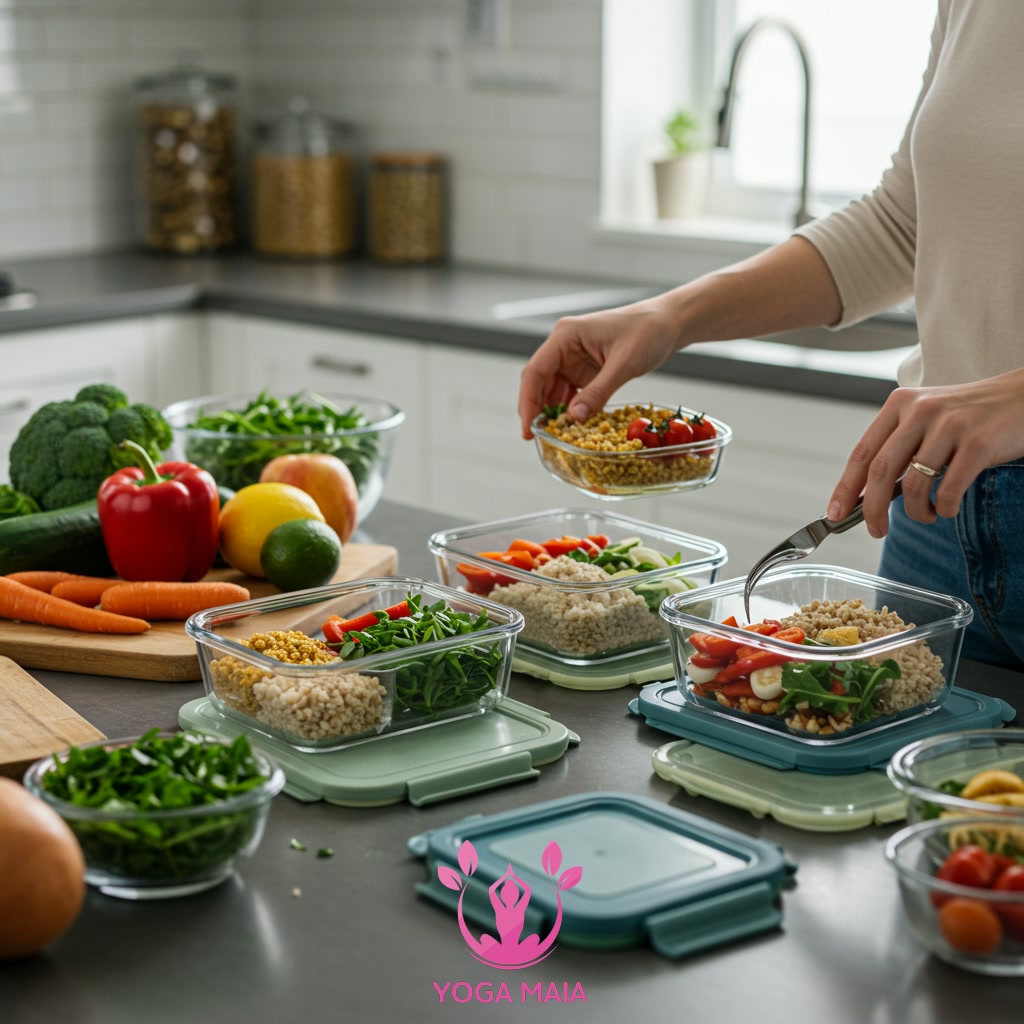 Practical Tips: Meal Planning and Preparation for a Yogic Lifestyle
Practical Tips: Meal Planning and Preparation for a Yogic Lifestyle
Section 6: Integrating Clean Eating into Your Daily Routine for Sustainable Practice
Building on the principle of whole foods, optimizing your yoga practice through diet means making specific choices. To fuel your flow effectively, prioritize nutrient-dense options like fresh fruits and vegetables, lean proteins, and healthy fats. Integrating these into your daily life for sustainable practice requires mindful planning. Consider meal prepping or preparing ingredients in advance to make healthy choices easier during busy days. Pack nutritious snacks to avoid impulsive unhealthy options when you’re out. Pay attention to hydration throughout the day as well. Remember that sustainability comes from consistency, not perfection; small, regular habits build lasting change. By consciously incorporating these clean eating habits, you create a stable foundation of energy and well-being that directly supports and enhances your commitment to your yoga journey.
 Integrating Clean Eating into Your Daily Routine for Sustainable Practice
Integrating Clean Eating into Your Daily Routine for Sustainable Practice












